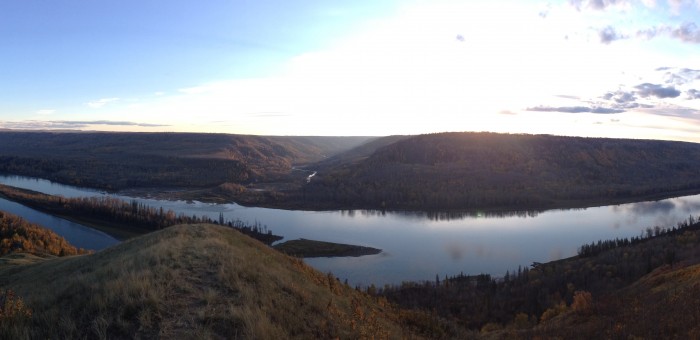Site C Joint Review Report Shows Major Obstacles for Approval
Media Statement: May 8, 2014
Site C Joint Review Report Shows Major Obstacles for Approval
For Immediate Release
Victoria BC – The Joint Review Panel’s report on the proposed Peace River Site C dam published today identifies major obstacles in the path for approval. While the report does not emphatically say yes or no to the project, certain sections highlight the permanent damage to the environment, farmland and wildlife the project would have. These include effects on First Nations rights, and lack of exploration of similar-cost renewable energy alternatives.
Andrew Weaver has pointed out that Site C is the wrong project at the wrong time when alternative energy, including geothermal, wind, tidal and small-scale hydro sources, coupled with existing dams would provide substantially improved firm energy and capacity. This approach would be less damaging to the environment and, distributed around B.C. It would provide future power requirements with better cost and employment outcomes. Geo-thermal, wind, tidal and smaller hydro projects would yield substantial economic benefit to communities, especially First Nations.
“The government should note the major obstacles outlined in the Joint Review Panel report on the Site C dam. The consequences on First Nations traditional fishing and hunting grounds are a barrier that will strain already tense relations, should the project proceed” Said Andrew Weaver – “The entire policy around energy development in British Columbia needs review as the report clearly stated Geo-thermal, and other renewable sources, should be explored”
The Panel concluded:
1: On the environment and wildlife:
- “the Project would cause significant adverse effects on fish and fish habitat”
- “significant adverse effects on wetlands, in particular valley bottom wetlands”
- “the Project would likely cause significant adverse effects to migratory birds relying on valley bottom habitat during their life cycle and these losses would be permanent and cannot be mitigated”
2: On renewables:
“The scale of the Project means that, if built on BC Hydro’s timetable, substantial financial losses would accrue for several years, accentuating the intergenerational pay-now, benefit-later effect. Energy conservation and end-user efficiencies have not been pressed as hard as possible in BC Hydro’s analyses. There are alternative sources of power available at similar or somewhat higher costs, notably geothermal power. These sources, being individually smaller than Site C, would allow supply to better follow demand, obviating most of the early-year losses of Site C. Beyond that, the policy constraints that the B.C. government has imposed on BC Hydro have made some other alternatives unavailable.”
3: Regarding First Nations:
The panel:
- “concludes that the Project would likely cause a significant adverse effect on fishing opportunities and practices for the First Nations represented by Treaty 8 Tribal Association, Saulteau First Nations, and Blueberry River First Nations, and that these effects cannot be mitigated.” –
- “ concludes that the Project would likely cause a significant adverse effect on hunting and non-tenured trapping for the First Nations represented by Treaty 8 Tribal Association and Saulteau First Nations, and that these effects cannot be mitigated.3 –
- “ the Project would likely cause a significant adverse effect on other traditional uses of the land for the First Nations represented by Treaty 8 Tribal Association,and that some of these effects cannot be mitigated.” And
- “concludesthat the Project would likely cause significant adverse cumulative effects on current use of lands and resources for traditional purposes.”
4: For background information on Andrew Weaver’s position with respect to the value of distributed renewable energy production instead of Site C, please see:
http://www.andrewjweaver.ca/2013/10/17/wind-power-site-dam-cents/
For interview requests:
Media Contact
Mat Wright – Press Secretary, Andrew Weaver MLA
mat.wright@leg.bc.ca
1 250 216 3382
Comments are closed.




